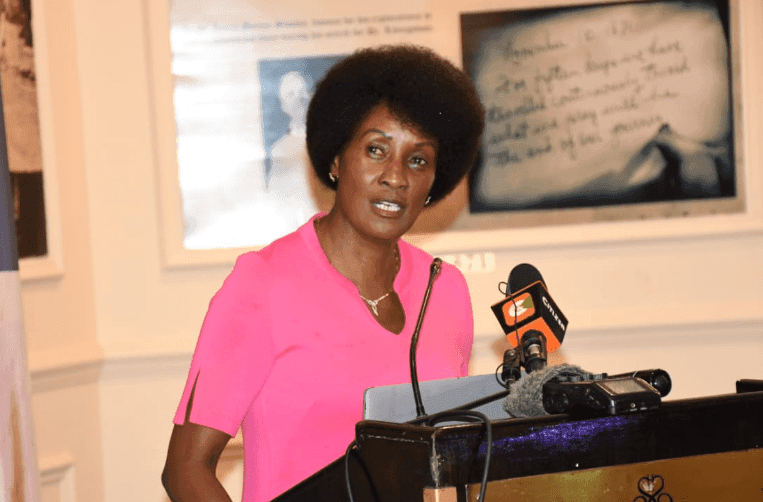We're loading the full news article for you. This includes the article content, images, author information, and related articles.
A protracted court battle over the recruitment of a new CEO for the Teachers Service Commission has stalled the appointment process, raising concerns about leadership stability and the potential for escalating succession wars that could impact over 350,000 teachers in Kenya.

A leadership vacuum at the Teachers Service Commission (TSC) is fueling concerns across Kenya's education sector as the recruitment of a permanent replacement for former CEO Dr. Nancy Macharia remains suspended. Dr. Macharia retired on June 30, 2025, after a decade at the helm, leaving a significant void that has been temporarily filled by an acting CEO whose tenure is now approaching the statutory six-month limit. This delay, stemming from a court injunction, has cast a shadow over the commission, with significant implications for teacher management and upcoming collective bargaining agreement (CBA) negotiations.
The process to appoint a new Commission Secretary and Chief Executive Officer was halted in late May 2025 by the Employment and Labour Relations Court in Mombasa. The injunction was granted in response to a petition filed by Mombasa resident Thomas Mosomi Oyugi, who challenged the constitutionality of the hiring criteria. Specifically, the petition contested Section 16(2) of the TSC Act, which requires candidates for the CEO position to hold a degree in education, arguing the clause is discriminatory.
Following Dr. Macharia's departure, Eveleen Mitei, a long-serving Director of Teacher Discipline Management, was appointed as the acting CEO on June 1, 2025. However, the ongoing legal stalemate has extended her interim leadership, creating uncertainty. Recent media reports, described by some commentators as “negative publicity,” have targeted the acting CEO, blaming her for issues that predated her appointment, such as a critical 2018 audit report and problems with a teacher promotion portal in the 2023/24 financial year. Some analysts suggest these attacks are unfounded and intended to portray the acting CEO as incompetent, pointing to a fierce succession battle unfolding behind the scenes.
The leadership impasse at the TSC, which oversees more than 350,000 teachers, comes at a critical time for the education sector. The commission is navigating the implementation of the Competency-Based Curriculum (CBC), managing teacher promotions, and preparing for negotiations on the 2025-2029 CBA. Teacher unions, including the Kenya National Union of Teachers (KNUT) and the Kenya Union of Post Primary Education Teachers (KUPPET), have emphasized the need for a substantive CEO to address pressing issues. These include controversies over teacher promotions, which have previously led to accusations of ethnic and regional bias, and the planned transition of teachers' medical cover to the new Social Health Authority (SHA).
Union leaders and education stakeholders have called for the incoming CEO to adopt a more consultative leadership style, contrasting with what some described as a strained relationship with unions during parts of Dr. Macharia's tenure. Key priorities highlighted for the next leader include reviewing the Career Progression Guidelines (CPG), which some unions claim have led to teacher stagnation, and ensuring the depoliticization of the commission's operations.
According to the TSC Act of 2012, the appointment of the CEO must be through a competitive recruitment process. The law stipulates that the officeholder serves a five-year term, renewable once. Dr. Macharia completed two full terms. The qualifications for the role include being a Kenyan citizen with a degree in education and at least ten years of experience in a relevant field like education, administration, or human resource management. It is this educational requirement that is currently being challenged in court.
The recruitment process, which is expected to take two to three months, involves public advertisement, shortlisting, and interviews by the TSC commissioners, led by Chairperson Dr. Jamleck Muturi. However, there is also speculation about potential political influence in the appointment, with some suggesting that the President might propose a candidate for the commission's consideration, given the CEO position is equivalent to that of a Principal Secretary.
As the legal proceedings continue, the education fraternity awaits a resolution that will bring stable leadership to the commission. The outcome of the court case will not only determine the immediate future of the TSC's leadership but could also set a precedent for the qualification requirements of one of the most influential roles in Kenya's public service. The timely appointment of a substantive CEO is seen as crucial for maintaining morale and stability within the teaching profession and ensuring the smooth implementation of ongoing educational reforms.
Keep the conversation in one place—threads here stay linked to the story and in the forums.
Sign in to start a discussion
Start a conversation about this story and keep it linked here.
Other hot threads
E-sports and Gaming Community in Kenya
Active 9 months ago
The Role of Technology in Modern Agriculture (AgriTech)
Active 9 months ago
Popular Recreational Activities Across Counties
Active 9 months ago
Investing in Youth Sports Development Programs
Active 9 months ago